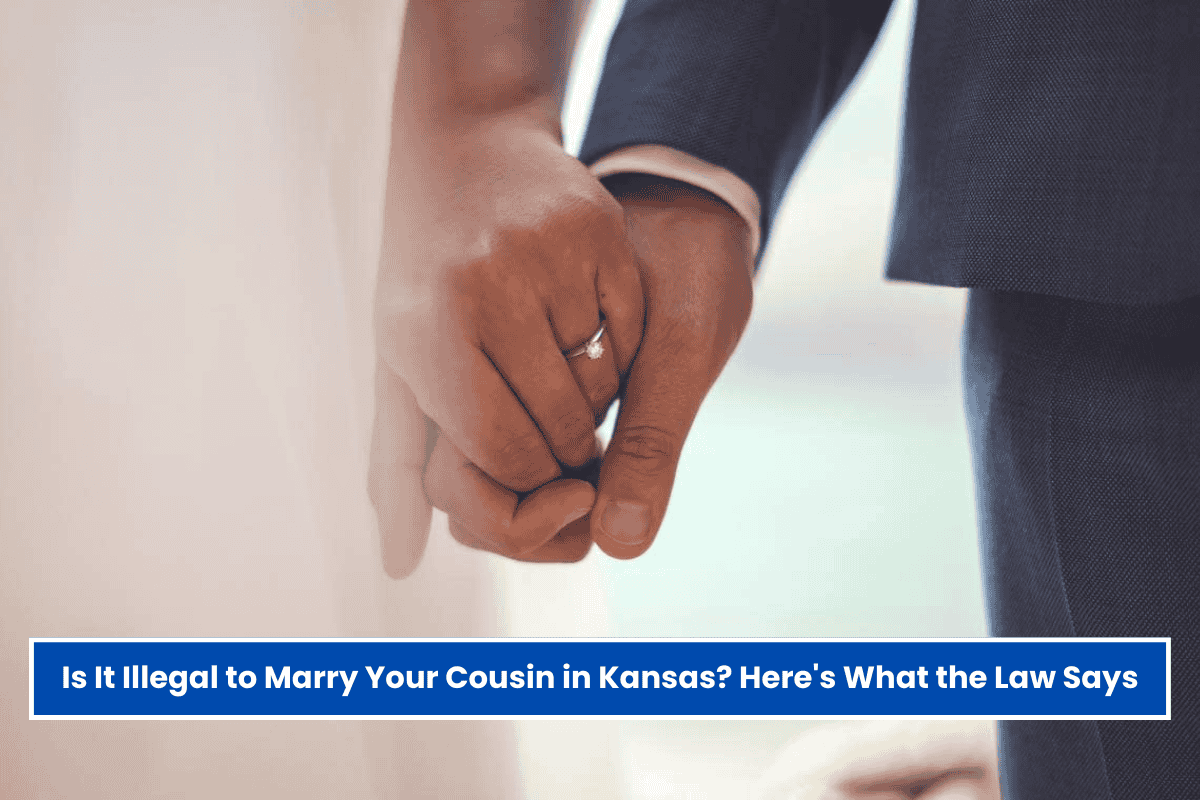Marriage laws differ from one U.S. state to another, especially when it comes to family relationships. In Kansas, the rules are very clear and strict when it comes to marrying close relatives. If you’re wondering whether first cousins can legally marry in Kansas, the answer is simple: No, they cannot. This article explains the Kansas laws on cousin marriage in a way that’s easy to understand, and also answers related questions you might have.
Is First Cousin Marriage Legal in Kansas?
No, Kansas law strictly prohibits first cousin marriage. According to the state’s official statutes, any marriage between first cousins is considered incestuous and absolutely void. This means such a marriage has no legal value and is not recognized by the state under any circumstances.
What Relationships Are Not Allowed?
Kansas has a clear list of close family relationships where marriage is illegal. These include:
Parents and children (including grandparents and grandchildren)
Brothers and sisters (including half-siblings)
Uncles and nieces, aunts and nephews
First cousins
If people from any of these relationships try to get married in Kansas, the marriage will not be legally valid.
Are There Any Exceptions to This Rule?
No, there are no exceptions. Unlike some states that allow cousin marriages under special conditions (like old age or infertility), Kansas does not allow first cousins to marry for any reason. It is a blanket ban, meaning it applies to everyone equally.
What About More Distant Relatives?
If you’re more distantly related, then the law is different. Kansas does allow marriage between more distant cousins. These include:
First cousins once removed – Legal
Second cousins – Legal
These relationships are not considered too close under Kansas law and are therefore allowed to marry within the state.
Marrying a First Cousin in Another State
While Kansas bans first cousin marriage within its borders, the law becomes more flexible when it comes to marriages performed in other states. If you legally marry your first cousin in a state where it is allowed—such as California or Colorado—Kansas will recognize your marriage when you return.
However, the marriage must meet two conditions:
- It must be legal in the state where it was performed.
- It must not go against Kansas public policy to the point that it’s considered unacceptable or “odious” by the courts.
The Kansas Supreme Court has already ruled that first cousin marriages legally done elsewhere are valid in Kansas.
Summary Table
| Relationship | Marriage Legal in Kansas? |
|---|---|
| First Cousins | No |
| First Cousins Once Removed | Yes |
| Second Cousins | Yes |
| Out-of-State First Cousin Marriage | Recognized if legal where performed |
To sum it up, you cannot legally marry your first cousin in Kansas, no matter your age, situation, or intention. The law clearly defines this type of marriage as incestuous and void. However, if you get married in a different state where cousin marriage is legal, Kansas will accept your marriage when you come back—assuming it follows that state’s law and doesn’t strongly violate Kansas public policy.
This makes it important for couples to understand both local and national marriage laws, especially when family relationships are involved. Always check with legal experts if you’re unsure. Understanding the law not only helps you stay within the rules, but also ensures your relationship is protected under state law.














